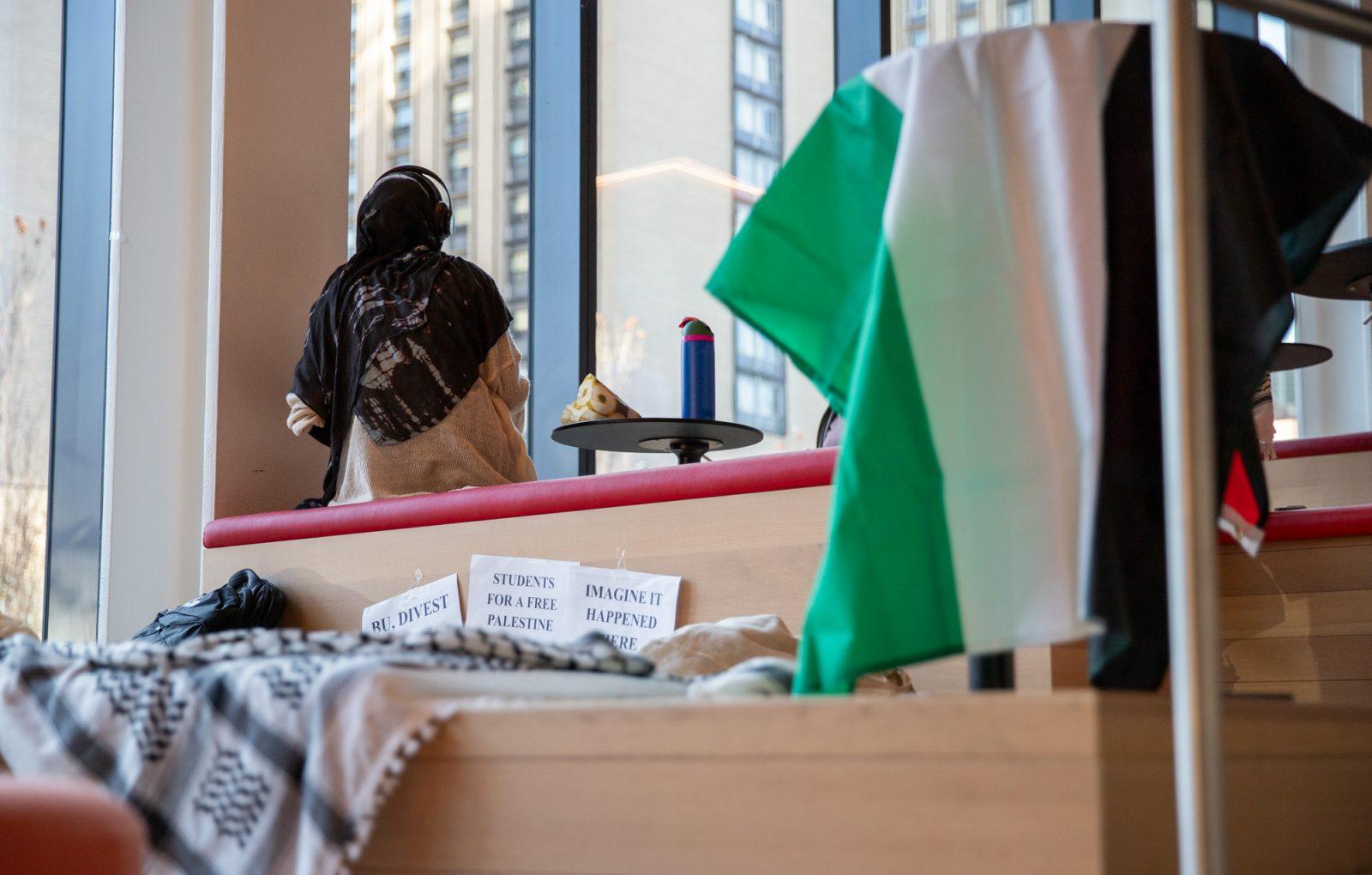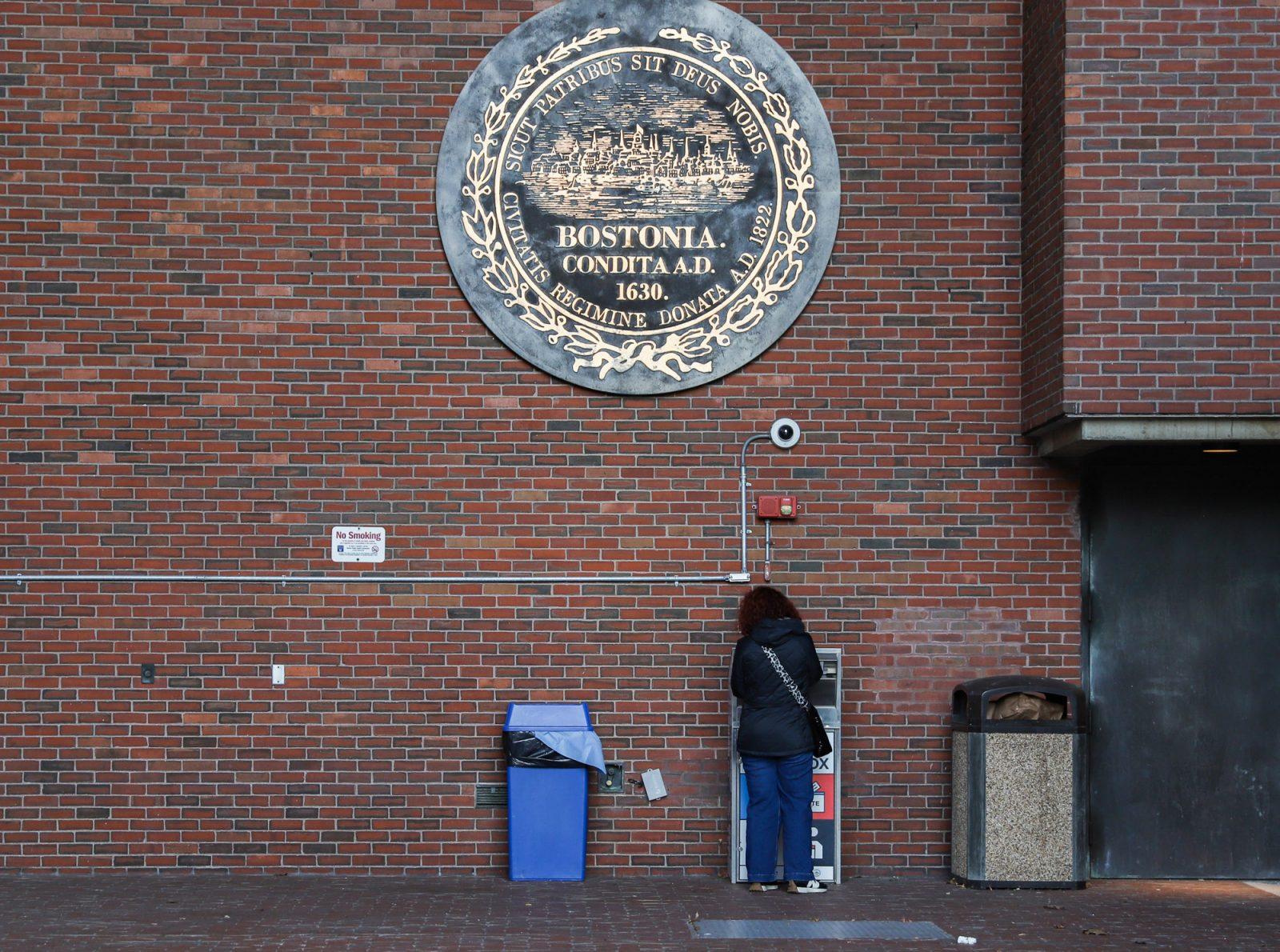Boston University released Friday two options for students to retrieve on-campus belongings: having the school pack then either store them or ship them to a continental U.S. address, or eventually returning in-person to pack up their residences.
Students had previously received a slew of mixed messages regarding collection of personal belongings left at the university.
BU Housing implied in an email March 11, prior to the closure of campus for the entire spring semester, that students on Spring Recess should return to campus and collect their belongings, while Dean of Students Kenneth Elmore and College of General Studies Dean Natalie McKnight advised students against it.
Housing then sent an email March 13 clarifying that students are advised to stay off-campus if possible and an email sent March 18 stated that the University would pack their items and ship them out or store them at an undetermined time.
Now, assuming the stay-at-home order is lifted May 18, students can return to campus in waves with regulations in place for how many students are permitted on campus at one time, according to a document on BU’s COVID-19 webpage.
The University will assign students to “Terrier Groups” dictating when each student is eligible to collect their belongings, the document stated. Students will be notified of their assigned group via email May 11, and each group will choose from multiple time slots.
BU spokesperson Colin Riley said the plan is meant to maintain order and adhere to safety regulations during the pandemic.
“A lot of thought and care went into how we can accomplish this with consideration for health and safety, and following Massachusetts advisories and health guidelines right now, which requires social distancing,” Riley said. “So, I think what [BU] came up with makes sense.”
The University plans to let students start returning to campus June 1, according to the BU Housing website. A calendar detailing times for the designated Terrier Groups is available for viewing.
The document also stated that the University is unable to ship internationally at this time, so students who do not have a U.S. address for their items to be shipped to can choose to store them through the summer at no charge. Students can, however, ship to an address within the U.S. that is not their place of residence.
Any items which do not fit a standard-size shipping box will be stored due to shipping restrictions for oversized items, BU wrote in the document.
Riley said there is much involved in ensuring the move-out process runs smoothly.
“This is an unusual situation, but the same factors apply: how do you remove contents, take them, move them with care and communicate with the people involved?” Riley said. “It’s very labor-intensive. Just think of how many people need to go into each room.”
BU also created the BU Moving/Packing app, which will become available to students once the University is ready to move their items. The app will allow students to receive notifications when the packers enter their room and identify which items in their residence are their own.
Students who already stored their belongings with UPS packaging can contact the UPS Store about retrieving their stored items once the travel advisory lifts, the document stated. The University plans to make any items stored for the summer available to students for pick-up during the fall move-in process.
Riley said he is uncertain of what will happen if the state’s stay-at-home advisory persists. He said the University is thinking about what is best for students at this time.
“The ultimate goal has been to reunite students with their belongings,” Riley said, “the things they need and have left behind.”
Hannah Palacios, a junior in the College of Communication and the College of Arts and Sciences, lives in Vancouver and currently has items at her South Campus apartment that exceed the standard shipping capacity. She said she feels the University did not aptly explain what she should expect for these belongings.
“There weren’t really clear directions on what would happen to that stuff. The whole process has just sort of been really unclear,” Palacios said. “Even this email says that the decision needs to be made today, but the email hasn’t been sent out today, and they won’t know, at least in my case, what the travel arrangements will be between Canada and the U.S. until probably the end of this month.”
Palacios added that she feels international students are left in the dark on important issues.
“It just seems like information kind of gets thrown out without specifics,” Palacios said, “or the frequently asked questions don’t really apply to everyone, particularly international students who don’t really go through the same process.”
Ariane Vigna, a sophomore in COM and CAS, wrote in an Instagram direct message she thinks BU could have warned students of a campus closure before Spring Recess.
“I understand that they were trying to not cause unnecessary panic and that the events unfolded very fast,” Vigna wrote. “But I wouldn’t have left my belongings in my dorm had I known there was a chance I’d be stuck abroad.”
Vigna, an international student from France, wrote that she understands the costs of shipping internationally, but that it leaves her in a precarious position.
“For me, it’s incredibly stressful to have to spend over $300 on an entirely new wardrobe and shoes and not have some official papers like my national ID and security card with me,” Vigna wrote.
Vigna added that with summer classes cancelled and dorms available, she thinks students should be able to leave their items until fall.
“I don’t understand why we’re not allowed to leave stuff in our dorms if we can’t even have it shipped to us,” Vigna wrote. “In my case, I only risk getting precious items broken or official papers lost by having everything stored.”



























































































































